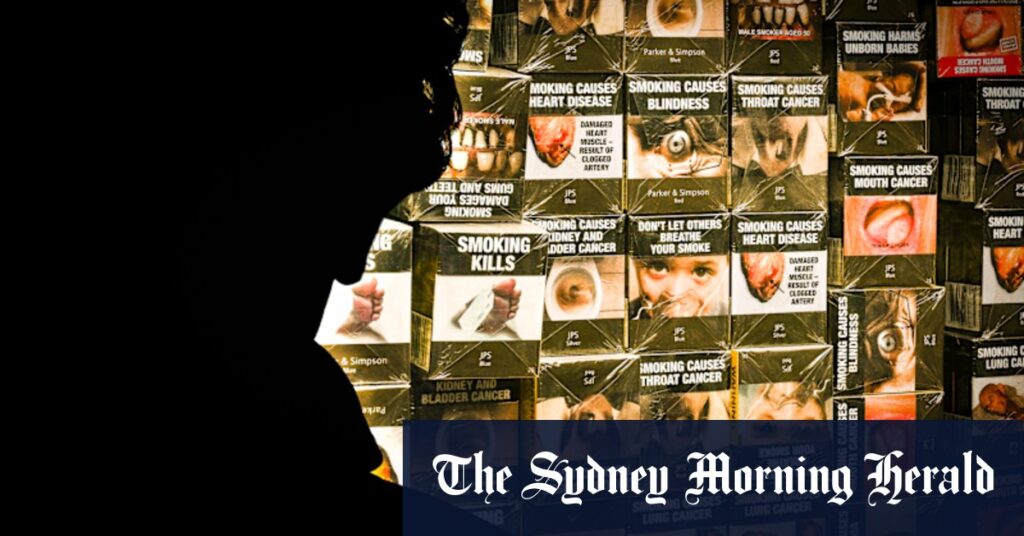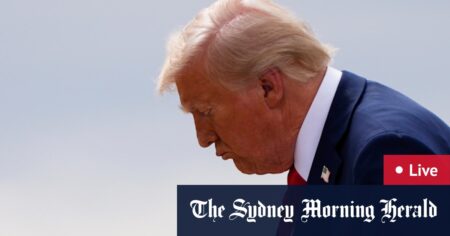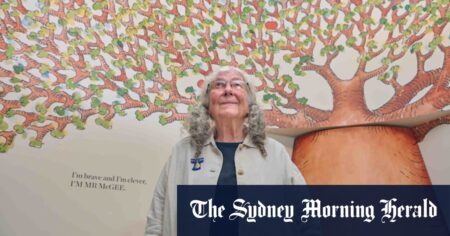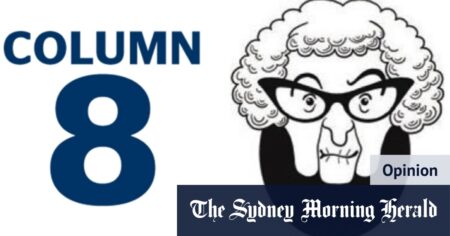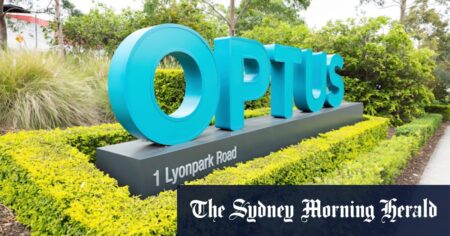The incident, which was caught on CCTV, caused extensive damage to the front gate and glass doors, but did not damage any stock.
Mr A says there was no threat or demands to pay a tobacco “tax” before the attack. The only sign of what was about to befall him was an unexpected visit from an unknown man asking to buy the shop.
Boxes of legal cigarettes inside the storage room of a tobacco shop.Credit: Eddie Jim
When Mr A refused to sell the business, “they opened their own shop, and that’s when the first firebombing started”. The message was loud and clear.
“I am a target now,” Mr A says.
Over the months that followed, arsonists attempted to torch Mr A’s business several times. Each time, they failed to fully enter the shop, but caused tens of thousands of dollars worth of damage. The attacks didn’t stop Mr A from reopening his business.
Loading
Mr A agreed to share his experience on the condition of anonymity to highlight the helplessness felt by traders unwillingly plunged into the middle of the long-running conflict. They often feel left with no other choice but to abandon their livelihood or face the consequences.
This masthead has chosen not to disclose Mr A’s real name, details about his business or when the attacks occurred to protect him and his family from potential retaliation.
In the crammed storage room behind Mr A’s shopfront, the shelves are stacked high with dozens of cigarette boxes. There’s a small, single bed on one side and a tiny coffee table covered in food supplies on the other. A metal pot sits atop a gas camping stove nearby.
“I sleep here. Because it’s not secure enough,” Mr A says, pointing at the bed.
“The police say: ‘You shouldn’t sleep here.’ But what choice do I have? I don’t have any other choice.”
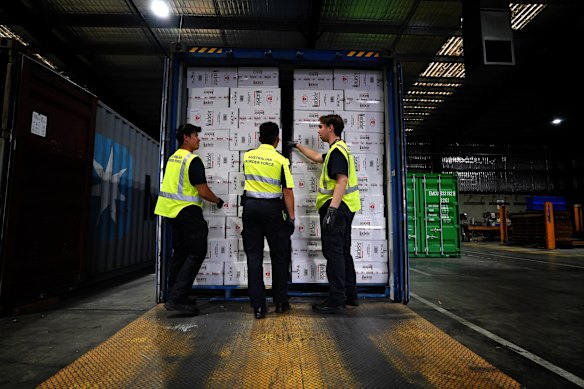
Australian Border Force officers with a container of illegal cigarettes in early 2024.Credit: Luis Enrique Ascui
The business owner says he needs to protect his stock, at least until he can bolster security. He has asked his local council for support to install bollards or a bench out the front to deter arsonists from another ram-raid, but he is yet to hear back.
He keeps watch on the street using CCTV cameras and ensures it is obvious someone is inside in a bid to dissuade wannabe arsonists from setting the shop alight while he’s inside. But he knows it’s risky business. Most nights, he can hardly sleep.
“I feel trapped, and nobody is helping. I can’t get help from anywhere,” Mr A says.
Loading
Police came to collect CCTV footage and statements after each arson attack, but Mr A says he is not aware of any arrests or charges so far. He is glad the state government is introducing a licensing scheme for tobacconists, but is unsure it will solve the issue.
Asked whether he has considered leaving the industry, Mr A says he can’t afford to start afresh while his children are still at school.
“I need to do business. I’ve got three kids to support.”
Mr A’s helplessness is palpable. But with nowhere else to turn and the threat of another attack on the horizon, he feels compelled to speak out despite the likelihood it will make him more of a target.
“I feel like between police, council, or whatever, we are just a football, and they are just passing it around. It doesn’t go anywhere,” he says.
“I don’t want anything to happen to anyone else.”
There have been 144 arson attacks on tobacconists and other businesses since the tobacco wars erupted in March 2023. Victoria Police have arrested almost 150 people connected to the conflict, which they believe is also linked to the murders of at least two major underworld figures and the death of innocent bystander Katie Tangey.
Harm Reduction Australia recently released a new policy brief calling on the federal government to consider dropping the tobacco excise to pre-2020 levels, and shift its focus from enforcement to regulation. This would include increasing access to regulated vapes and other forms of nicotine products like pouches to reduce smoking rates and curb the black market and follows similar approaches in New Zealand, the United Kingdom and Sweden.
The brief described Australia’s current approach as unsustainable and increasingly counter-productive. Recent data released by Roy Morgan shows smoking and vaping rates among people aged 18 to 24 jumped by almost 3 per cent since September 2024, largely propelled by soaring illicit tobacco use. About 9 per cent of those surveyed in that age bracket reported smoking black market tobacco, compared to 1.5 per cent in 2020.
“Australia now has the most restrictive nicotine control regime in the developed world. Tobacco products are subject to extraordinarily high levels of taxation, while consumer nicotine vaping products remain virtually banned. Although these measures were intended to reduce smoking, they have led to a range of dangerous unintended consequences,” the brief reads.
*Mr A is a pseudonym chosen by this masthead to protect the shop owner’s identity.
Start the day with a summary of the day’s most important and interesting stories, analysis and insights. Sign up for our Morning Edition newsletter.
Read the full article here







